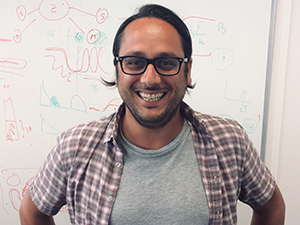Under the guidance of Anna Wilkins and Magnus Dillon, we are seeking to recruit a Postdoctoral Training Fellow to contribute to a project on the microenvironmental effects of radiotherapy, assessing the microenvironmental effects of advanced radiation technologies in vivo and conducting analyses of radiotherapy-treated human tumour tissues. The successful candidate will play a key role in developing our knowledge of the effect of radiation (microbeam +/- FLASH) on fibroblast and myeloid populations in pancreatic and bladder cancer models.
About you
The successful candidate must have:
- a home office licence and prior experience of in vivo mouse work
- immunology experience, either using multiparameter flow cytometry, development and analysis of multiplex immunofluorescence or spatial transcriptomic data analysis
Candidates who are nearing completion of their PhD may apply, but confirmation on awarded PhD is required within 6 months of employment.
The ICR has a workforce agreement stating that Postdoctoral Training Fellows can only be employed for up to 7 years as PDTF at the ICR, providing total postdoctoral experience (including previous employment at this level elsewhere) does not exceed 7 years.
For general information on Postdocs at The ICR, more information can be found here.
Department/Directorate Information
The Division of Radiotherapy and Imaging brings together research groups that work on how to use radiation therapy, guided by state-of-the-art imaging techniques, in the most effective way to cure cancer. Our work is based on the central idea that the best outcomes will be achieved by delivering curative radiation doses to tumours, while limiting radiation damage of neighbouring normal tissues. Our therapy often includes adding drug treatments alongside radiation therapy as a means of killing cancer cells more effectively and, at the same time, activating anti-tumour immune responses. Preclinical work includes research that combines radiation therapy with radiation sensitisers and biological response modifiers (for example innate immune activators, immune checkpoint inhibitors) to maximise anti-tumour efficacy and give protection against tumour recurrence. Multiple translational clinical studies seek to address these themes through our collaborators in the Royal Marsden. Overall, our mission is to cure more patients with fewer immediate and long-term side effects of treatment.
Biological enhancement of radiotherapy and Stromal Radiobiology Groups
The Biological Enhancement of Radiotherapy and Stromal Radiobiology Groups (led by Magnus Dillon and Anna Wilkins) aim to understand how the tumour microenvironment drives radiotherapy resistance. The groups focus on gastrointestinal and bladder cancers with an emphasis on integrating findings from preclinical models and patient samples.
The immunostimulatory effect of radiation is often restrained by suppressive cells in the tumour microenvironment. These include certain populations of cancer-associated fibroblasts, macrophages, myeloid-derived suppressor cells and tumour-associated neutrophils. Both fibroblast and macrophage activation and polarity can be affected by radiation, with dose-dependent effects. The effect of dose-rate is unknown, but delivering radiation at ultra-high dose-rates (FLASH) is believed to have reduced effects on normal tissues, including immune cells. Microbeam radiotherapy offers the opportunity to modulate different spatially-distributed populations by exposure to different radiation doses. Using these technologies may allow the delivery of radiation which (a) preserves and (b) stimulates anti-tumour immune cells, when compared to standard treatment.
We work collaboratively within other groups in the Centre for Immunotherapy of Cancer and the Centre for Cancer Imaging
What we offer
A dynamic and supportive research environment
Access to state-of-the-art facilities and professional development opportunities
Collaboration with leading researchers in the field
Competitive salary and pension
We encourage all applicants to access the job pack attached for more detailed information regarding this role. For an informal discussion regarding the role, please contact [email protected] or [email protected]
.tmb-propic-md.jpg?Culture=en&sfvrsn=c25d2b2f_9)
 .
.
